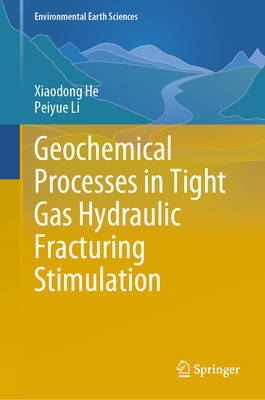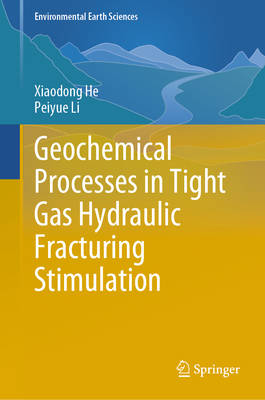
- Retrait en 2 heures
- Assortiment impressionnant
- Paiement sécurisé
- Toujours un magasin près de chez vous
- Retrait gratuit dans votre magasin Club
- 7.000.0000 titres dans notre catalogue
- Payer en toute sécurité
- Toujours un magasin près de chez vous
213,95 €
+ 427 points
Description
This book examines the Sulige Gas Field--China's largest natural gas field--as a case study. Drawing on field hydraulic fracturing data and laboratory water-rock interaction experiments, it systematically investigates the geochemical processes occurring during hydraulic fracturing. These processes are analyzed using X-ray fluorescence spectroscopy (XRF), X-ray diffraction (XRD), scanning electron microscopy (SEM), geochemical modeling, end-member mixing analysis, and isotopic tracing. In addition, the book explores regional water environmental issues triggered by hydraulic fracturing, as well as strategies for managing and utilizing flowback water resources. The findings provide a theoretical foundation and technical support for the green and sustainable development of unconventional energy resources, while significantly advancing the understanding of geochemistry in deep subsurface environments. By bridging fundamental geochemistry and practical engineering, this book offers actionable insights for reservoir engineers, geochemists, and policymakers to address environmental and engineering challenges effectively.
Spécifications
Parties prenantes
- Auteur(s) :
- Editeur:
Contenu
- Nombre de pages :
- 232
- Langue:
- Anglais
- Collection :
Caractéristiques
- EAN:
- 9783032151797
- Date de parution :
- 26-02-26
- Format:
- Livre relié
- Format numérique:
- Genaaid
- Dimensions :
- 155 mm x 235 mm

Seulement chez Librairie Club
+ 427 points sur votre carte client de Librairie Club
Les avis
Nous publions uniquement les avis qui respectent les conditions requises. Consultez nos conditions pour les avis.





